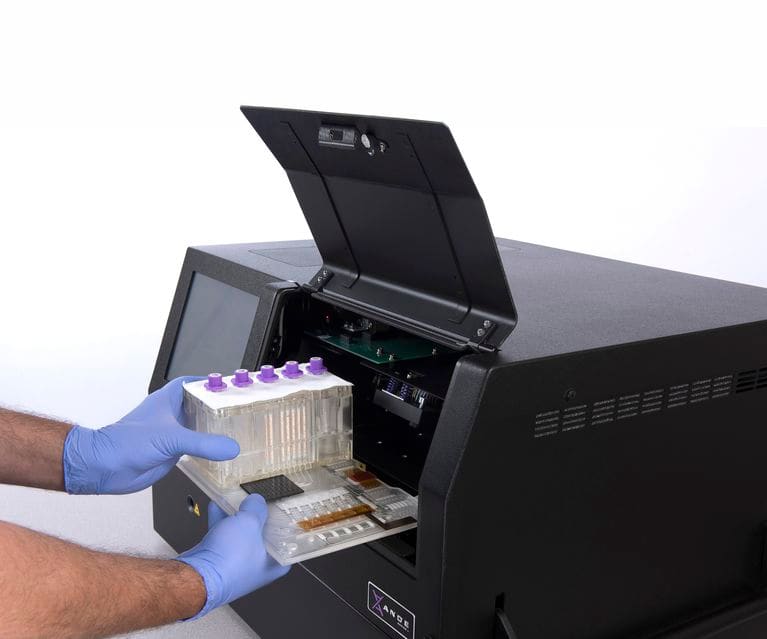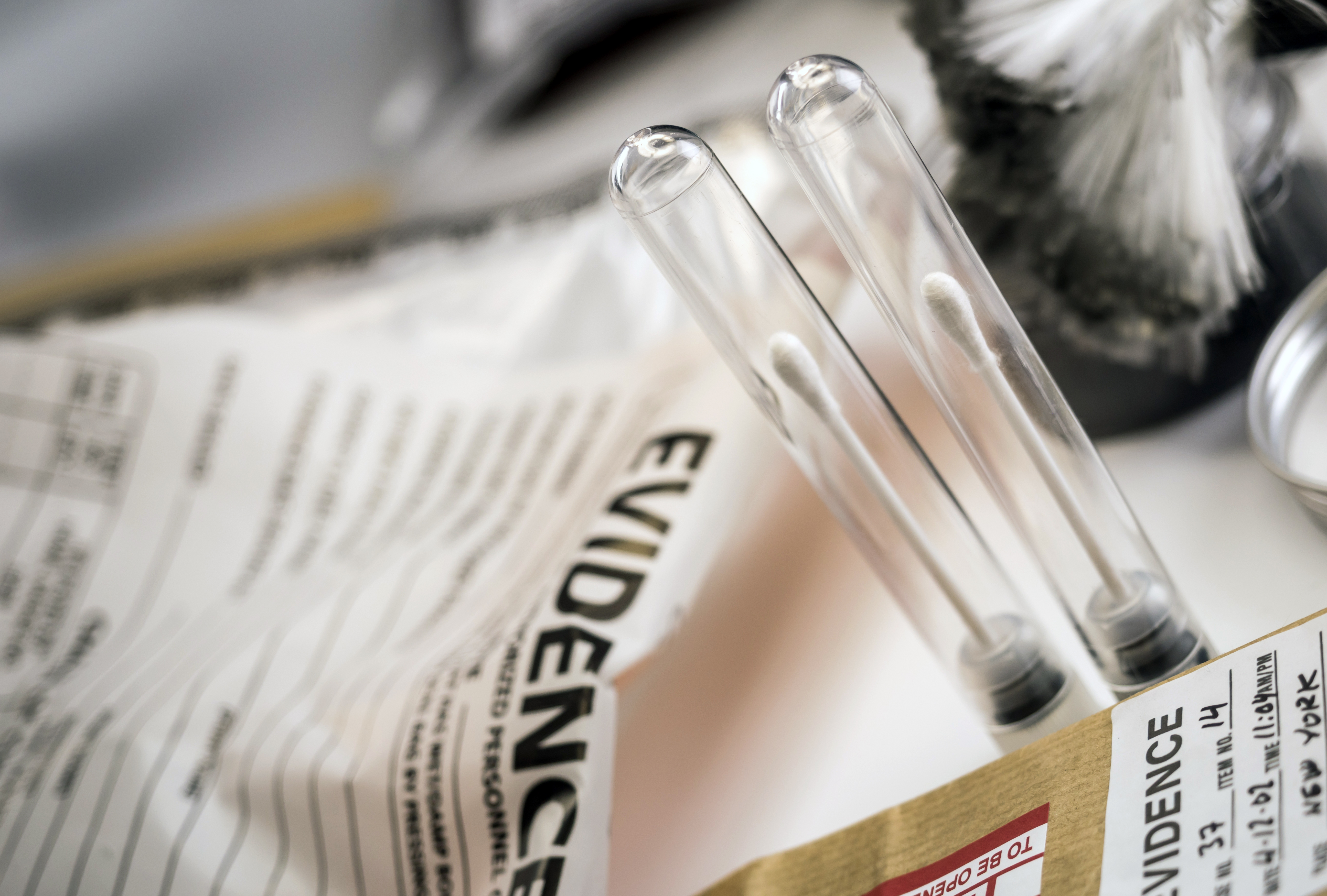The Kentucky State Police started using a new DNA test in February that law enforcement officials say could completely revolutionize criminal investigations, analyzing the data in under two hours instead of days or weeks.
Colorado-based ANDE rapid DNA is offering its quick DNA testing to Kentucky state police for free as part of an ongoing pilot program. Kentucky is the first state to use ANDE’s technology for sexual assault cases and it’s getting a lot of notice from other states.
ANDE Rapid DNA declined to provide its sales data, but since its launch in February, Kentucky officials say 27 other states reached out within the first few weeks with questions and interest in the program.
“Let’s be clear, this is a game changer,” said Kentucky State Trooper Billy Gregory.
 The global DNA testing market, which includes health-care testing as well as rapid DNA testing, is quickly expanding. It’s estimated to grow from around $2 billion in 2018 to $20.8 billion in annual business by 2024, according to a May report by India-based business consulting firm KBV Research.
The global DNA testing market, which includes health-care testing as well as rapid DNA testing, is quickly expanding. It’s estimated to grow from around $2 billion in 2018 to $20.8 billion in annual business by 2024, according to a May report by India-based business consulting firm KBV Research.
It’s a rapidly growing field and about to get even bigger. The Federal Bureau of Investigation established its Rapid DNA Program Office in 2010 to help develop the technology for fast DNA tests.
Police in Palm Bay, Florida, bought the first commercial rapid DNA testing equipment in 2012, an IntegenX RapidHIT 200 system, using it in 2014 to help solve a burglary case after more than a year of testing.
That was followed with the Rapid DNA Act, which was signed into law in 2017 and authorized the FBI to write standards and procedures for its application across the U.S.
The FBI’s chief biometric scientist for the agency’s lab Thomas Callaghan said it hopes to complete that work this year as part of a pilot project that can “develop a DNA profile in a booking station, with no human review, and have it electronically enrolled and searched in the national database.” The technology needs to be on par with a fully staffed lab, he said.
Other agencies aren’t waiting. The Department of Homeland Security developed its own rapid DNA test for a pilot program it’s using along the Mexican border. It analyzes cheek swabs to verify family relationships for immigrants who are illegally crossing the border for about $100 per test, according to DHS.
California officials also hired ANDE to help identify victims in the state’s wild fires in November that killed 88 people. The company was able to provide same-day results when it typically takes months or even years to identify human remains, said ANDE Rapid DNA Chief Scientific Officer Dr. Richard Selden, who founded the company in 2004.
They were able to narrow down the search for victims with DNA samples from family members of the missing in California, he said.
“We’re not doing some kind of magical chemistry inside a magical box, we’re using the same chemical approach in the labs,” Selden said, adding “we’ve just automated it, we’ve made it faster, and we’ve made it so that humans don’t have to handle it.”
Massachusetts biotechnology company Thermo Fisher Scientific provides similar services. Its Applied Bioystems RapidHIT ID System provides full DNA results in 90 minutes, according to the company’s website. Thermo Fisher, which declined to comment, bought IntegenX last year for $65 million.
The fast results are more expensive than traditional testing. Conventional DNA testing costs $2,100 for a sexual assault kit and $2,450 with the Rapid DNA device, said Laura Sudkamp, director of the forensic laboratory for the Kentucky State Police. She said those costs should come down over time as more departments use the new technology.
“We were dubious and a little leery,” said Sudkamp, “so we were curious to get our hands on it and give it a try.”

The state of Kentucky is still verifying all of Rapid DNA results with conventional testing, but the pilot program is a success so far, she said. She said she’s applying for grants to help offset the cost of rolling the program out on a larger scale across the state, which is estimated to cost up to $7 million each year.
“Time is money, and the time that it saves us will actually balance out,” Sudkamp said.
Although it saves time, it’s not totally automated. Law enforcement officials still need to check the results against local or state databases to see if there’s a match. The FBI hasn’t given ANDE or any other rapid DNA testing system clearance to search against the FBI’s National DNA Index System, or NDIS, FBI spokeswoman Raushaunah Muhammad said in an email.
“The FBI will consider and approve, as appropriate, rapid DNA systems for booking agencies once the relevant standards and procedures required by the Rapid DNA Act of 2017 are issued and all required IT communication enhancements for CODIS compatibility are implemented,” she said.
The conventional process of testing generally DNA takes days. If it needs to be sent to a lab, it could take months to get results because of the existing backlog of crimes waiting for DNA testing.
“No longer are we faced with six month, nine month,12, 18-month delays on processing an assault kit, just to come up with a potential suspect,” said Trooper Gregory, a 26-year law enforcement veteran. “Now we have technology in front of us that literally produces that within 90 minutes and that turnaround time for us is within 5 days. We may get the opportunity to put a name to a potential suspect, yes that is exciting, that is groundbreaking stuff.”
There are some drawbacks, officials said. Rapid testing also requires more DNA than conventional testing to produce a good match.
“You have to have a very good sample in order to run it through the system and get a good profile. If it’s a just a trace amount of blood or semen, you’re not going to get that,” Sudkamp said.
If the test doesn’t work, “the rapid DNA instrument is not going to generate a profile that will result in a false match. It will either be no DNA present, not enough DNA present, or a mixture,” Sudkamp said.
Still, the technology promises to reduce crime, human trafficking, identify disaster victims and exonerate the innocent quicker than anything else available today, Selden said.
“In 5 years Rapid DNA will be everywhere,” Selden said. “But today we’re at that inflection point where it’s really starting to take off now.”

